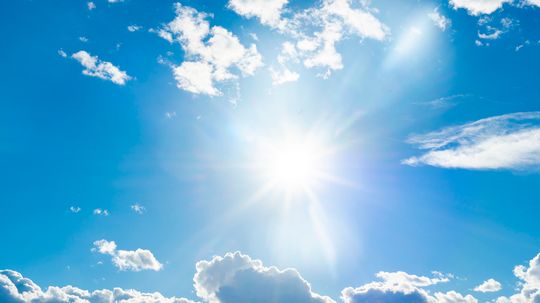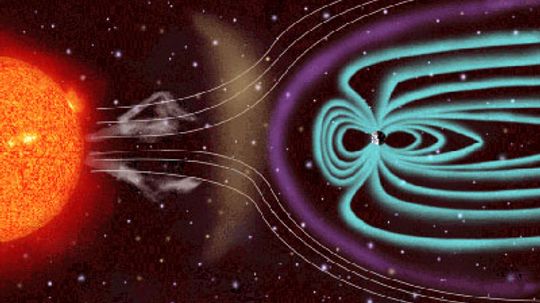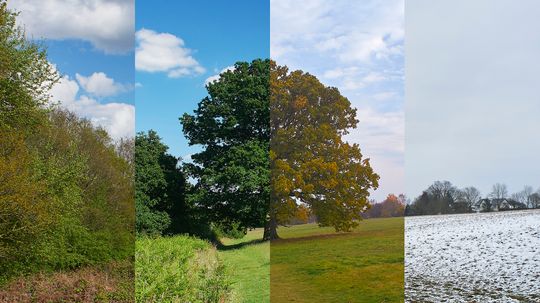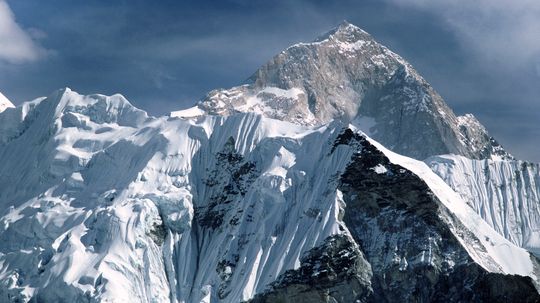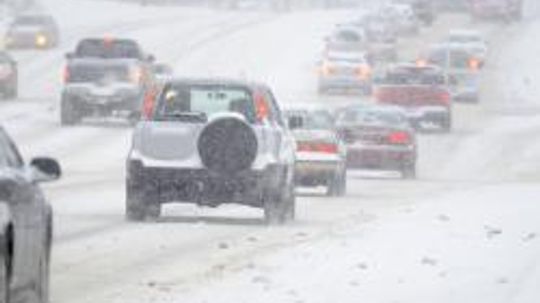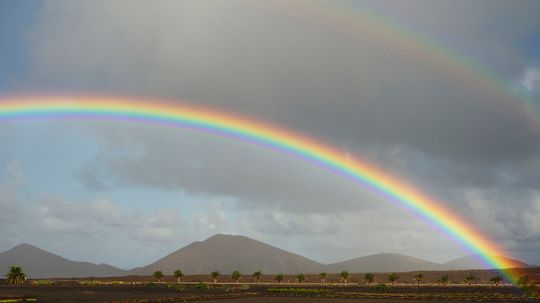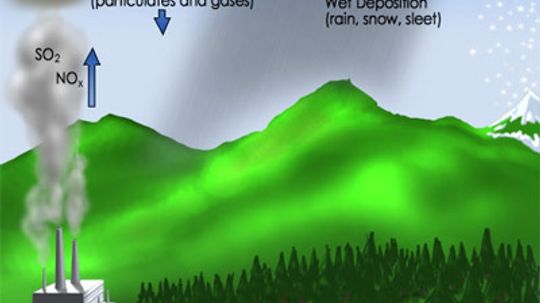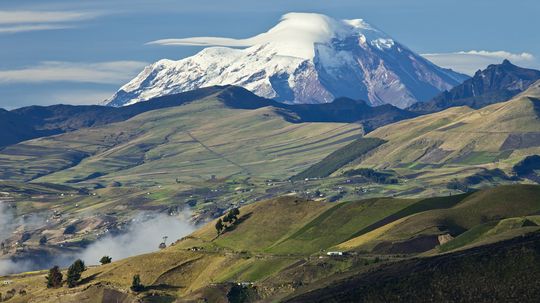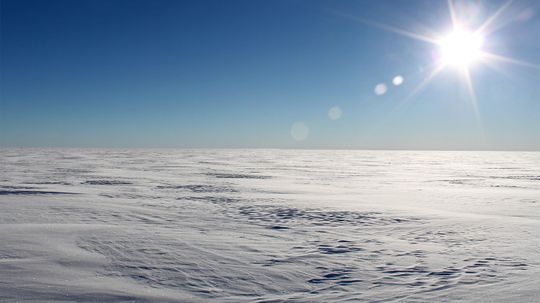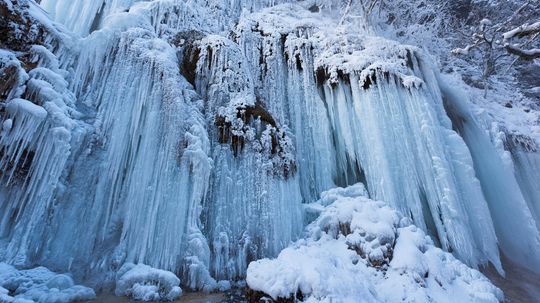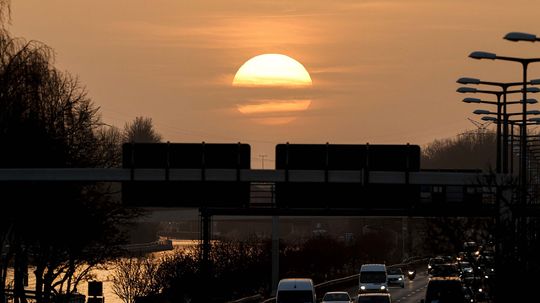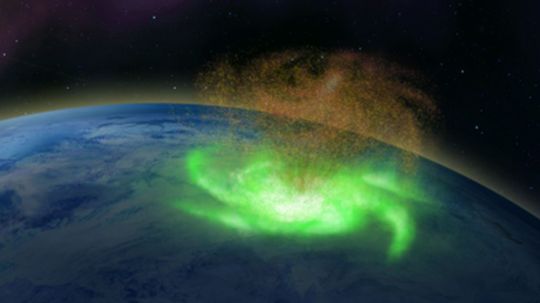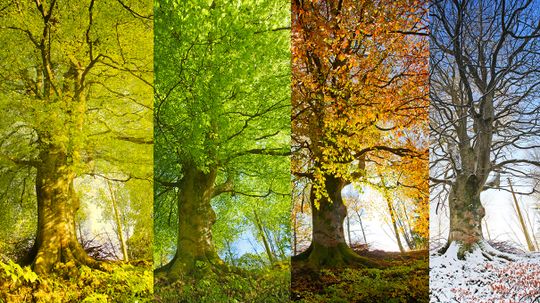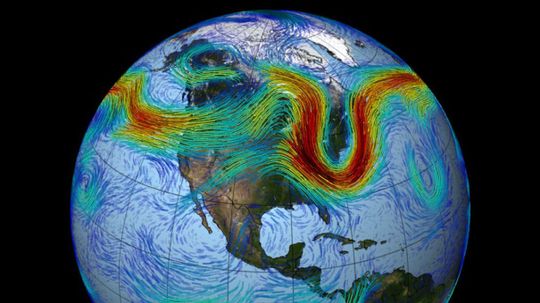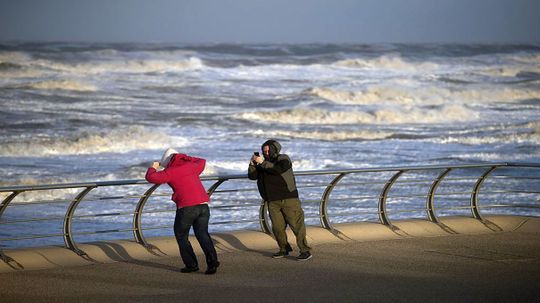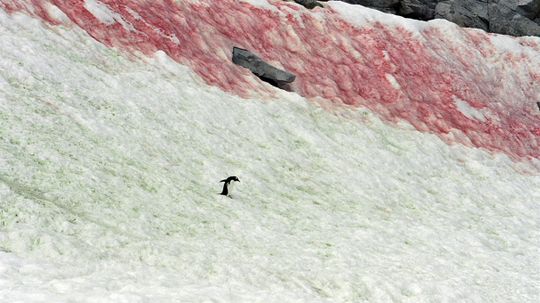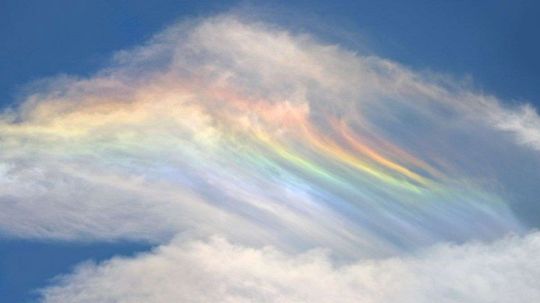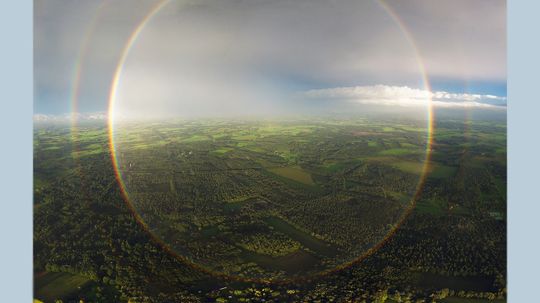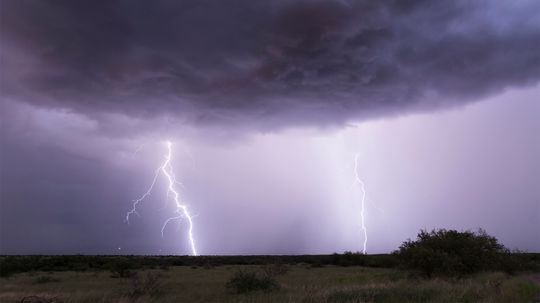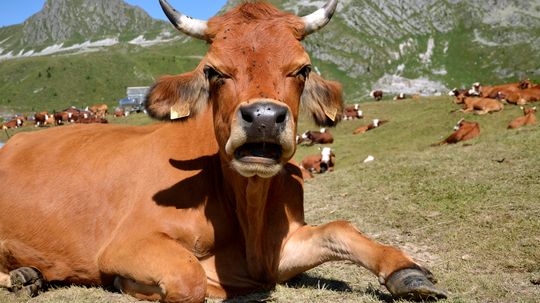Atmospheric Science
The atmosphere is the key to life on Earth. This thin layer is what protects us from the hostile environment of space. Here you can learn all about the atmospheric sciences.
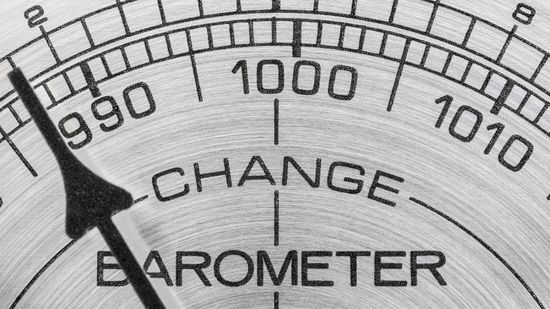
How Is Barometric Pressure Measured and Why?
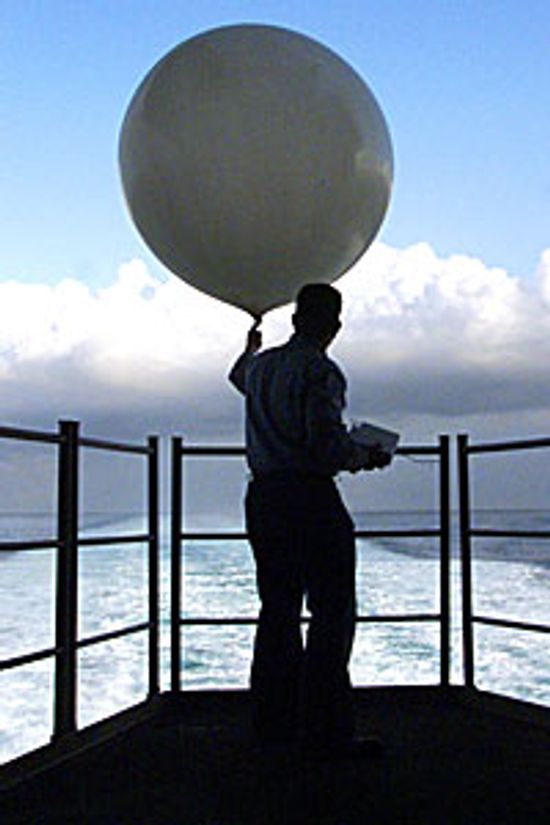
How a Weather Balloon Works?

How the Tornado Intercept Vehicle Works

10 States With the Best Weather Year-round

Find the Best Weather in the U.S. in These 8 Cities

Can China control the weather?
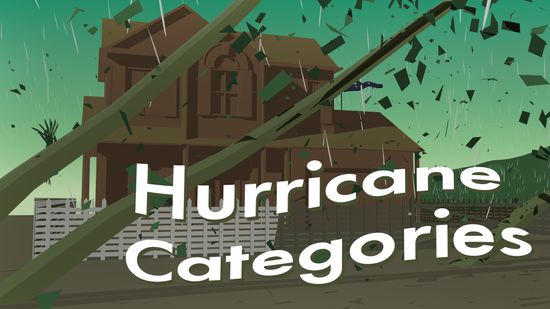
HowStuffWorks Illustrated: Hurricane Categories
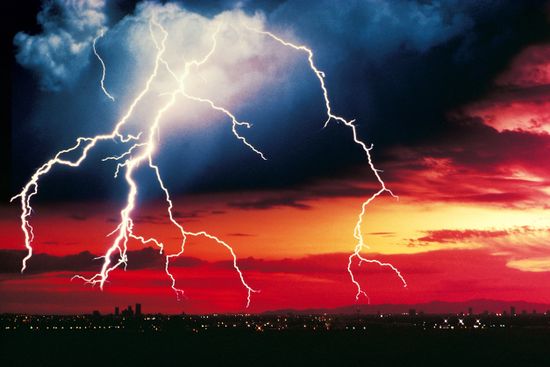
10 Myths About Lightning
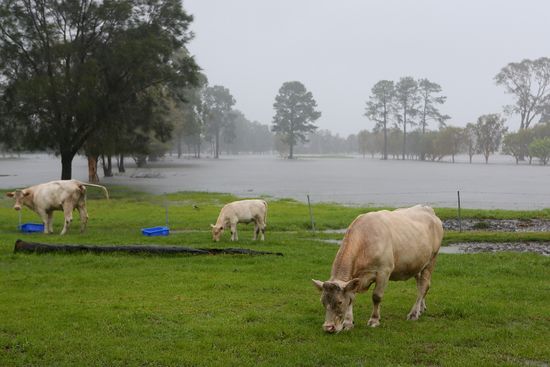
10 Ways Animals Supposedly Predict the Weather
Learn More / Page 2
We've all probably looked up and wondered why the sky is blue instead of, say, brown. The sky is blue because of the way Earth's atmosphere scatters light from the sun.
Sometimes a lightning storm heralds sightings of St. Elmo's Fire. What causes the mysterious glow sailors interpreted as a sign of salvation?
By Julia Layton
Every night on the news, the weatherperson reports the UV index. What is the UV index and how is it calculated?
Advertisement
What causes the seasons? Why are the seasons reversed in the Northern and Southern Hemispheres? And if the Earth moves in an elliptical orbit around the Sun, why don't we have two summers and two winters every year?
By Sascha Bos
Why is it colder at the top of a mountain than it is at sea level? Heat rises, and the top of a mountain is closer to the sun, so shouldn't it be hotter at the top of a mountain?
Precipitation can vary from rain to snow when the temperature is below freezing. Why does precipitation not always fall as snow when it's below freezing?
We can usually see rainbows right after a rainstorm on a warm Spring day. These giant colorful arcs stand out against the dark rain clouds. Have you ever wondered what causes this phenomena? Find out how rainbows are created in this article from HowStuffWorks.
Advertisement
Acid rain is caused by emissions of sulfur dioxide and nitrogen oxides from power plants, cars and factories. Find out how acid rain is produced, how it affects natural and man-made objects and how governments aim to reduce it.
By Sarah Dowdey
A perfect climate means different things to different people. These 10 countries span the globe and offer a wide range of climates to satisfy any taste -- hot, cold or in-between.
Iceland? The North Pole? Antarctica? There are a lot of super cold places on this planet, but which one can claim bragging rights as the coldest place on Earth?
By Mark Mancini
It might seem that the constant rushing of water over a falls would keep it from freezing, but that isn't always the case. Check out the science behind the phenomenon of the frozen waterfall.
By Mark Mancini
Advertisement
Dusk is a beautiful time of day. So is twilight. But when does one turn into the other? And did you know there were three versions of each?
In 2014, scientists observed a space hurricane for the first time; they reported their findings this year. But what's a space hurricane - and do we on Earth have to worry about with them?
The four seasons experienced by Earth's midlatitude regions are being gradually altered by global warming - but a climate expert says they won't completely go away.
Polar temperatures are changing more rapidly than equatorial ones, making the jet stream slower and wider, and extreme events longer-lasting.
Advertisement
We've all seen shots of meteorologists fighting gale-force winds to report on storms. So just how high can the winds get before the reporters are knocked off their feet?
The danger to the iconic statues is now greater than ever due to erosion and higher-energy wave action caused by climate change.
By Amanda Onion
Red snow? Yes. It totally exists. And while it might look cool, it's not exactly what you want to see from Mother Nature.
By Mark Mancini
Very specific atmospheric conditions and just the right perspective are necessary to see the phenomenon.
Advertisement
Smartphone cameras enable us to take striking pictures of strange atmospheric phenomena-though we don't always know what we're seeing.
The simple explanation is you have to be in just the right spot and the conditions have to be perfect for you to see the entire 360 degrees.
By Mark Mancini
It's sometimes easy to confuse the two, but weather and climate are very different things.
You've probably heard that no two snowflakes are alike, but how can that be true? Find out how molecules of water vapor come together to form these winter wonders.
Advertisement
Ever hear that saying that a cow lies down when rain is coming? This superstition may not be as udderly ridiculous as you think.
A rainbow's ability to bring joy to just about anyone is probably why they're painted on kids' cheeks at fairs. But, what do rainbows mean? In this article, we'll look at rainbow symbolism from around the world.
